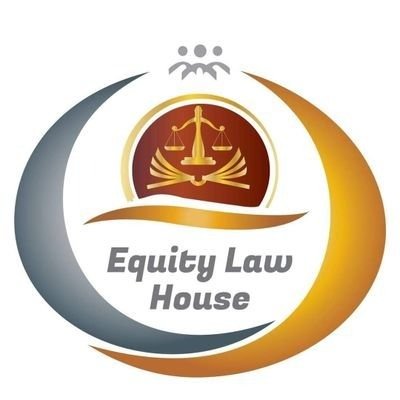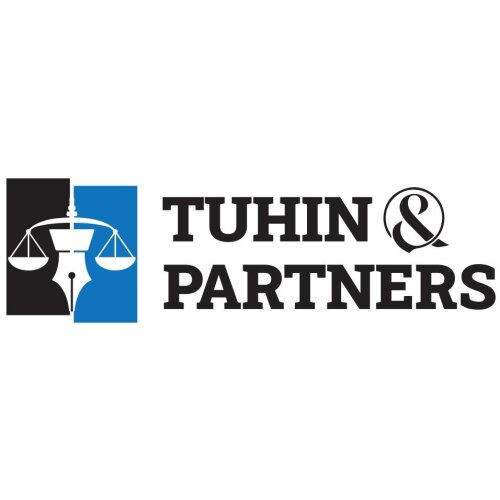Best Trusts Lawyers in Bangladesh
Share your needs with us, get contacted by law firms.
Free. Takes 2 min.
Or refine your search by selecting a city:
List of the best lawyers in Bangladesh
About Trusts Law in Bangladesh
Trusts in Bangladesh are governed by the Trusts Act of 1882. A trust is a legal arrangement where one party, known as the trustee, holds property for the benefit of another, known as the beneficiary. Trusts can be used for various purposes, such as estate planning, charitable endeavors, and financial management. The legal framework ensures trust creation, management, and termination are conducted transparently and fairly.
Why You May Need a Lawyer
Legal assistance in trusts might be necessary in several situations, such as:
- Creating a trust: Attorneys can ensure the trust document meets legal requirements and reflects your intentions.
- Managing a trust: Trustee responsibilities can be complex, and legal guidance can help avoid breaches of duty.
- Disputes and litigation: Conflicts may occur among trustees and beneficiaries, requiring legal resolution.
- Estate planning: Trusts can be an important part of estate planning, and legal advice can optimize their use.
Local Laws Overview
The key aspects of local laws relevant to trusts in Bangladesh include:
- Trust Formation: The trust must have a clear purpose, a competent trustee, and identifiable beneficiaries.
- Trustee Duties: Trustees must manage the trust assets responsibly and in the best interests of beneficiaries.
- Trust Registration: Not mandatory for private trusts, though public trusts need registration with relevant governmental bodies.
- Revocation and Modification: Trust terms must stipulate conditions under which a trust can be changed or ended.
- Tax Implications: Tax laws may affect the income and capital gains derived from the trust property.
Frequently Asked Questions
What is a trust?
A trust is a legal entity where one party holds property for the benefit of another, allowing for efficient management and distribution of assets.
Do I need to register a trust in Bangladesh?
Registration is not required for private trusts but is necessary for public charitable trusts.
Who can be a trustee?
Any competent individual or legal entity capable of holding property can serve as a trustee.
Can a trust be changed once created?
Yes, if the trust deed allows for amendments, changes can be made under specified conditions.
Are trusts taxed in Bangladesh?
Income and capital gains from trust properties may be subject to taxation depending on the nature of the trust and applicable tax laws.
What happens if a trustee breaches their duty?
Beneficiaries can take legal action against a trustee who fails to uphold their responsibilities.
Can a beneficiary be a trustee?
Yes, a beneficiary may also be a trustee, though they must act in the best interest of all beneficiaries.
How can a trust be terminated?
Termination can occur when its purpose is fulfilled or under conditions outlined in the trust deed.
What is the difference between a revocable and irrevocable trust?
A revocable trust can be altered or revoked by the settlor, while an irrevocable trust generally cannot be changed after its creation.
How is property transferred to a trust?
The legal title to the property is transferred to the trustee, who manages it according to the trust's terms.
Additional Resources
For further assistance on trusts, consider reaching out to:
- Lawyers: Specialized attorneys in estate planning and trust law.
- Bangladesh Bar Council: Provides information on legal professionals across Bangladesh.
- Ministry of Law, Justice, and Parliamentary Affairs: Resources and updates on current laws.
- Tax Consultants: Address tax implications on trust income and capital gains.
Next Steps
If you need legal assistance with trusts, consider these steps:
- Research qualified trust law attorneys in your area.
- Prepare a list of questions and objectives for your initial consultation.
- Gather and organize relevant documents about your assets and intended trust structure.
- Schedule consultations with potential lawyers to find one who best suits your needs.
Lawzana helps you find the best lawyers and law firms in Bangladesh through a curated and pre-screened list of qualified legal professionals. Our platform offers rankings and detailed profiles of attorneys and law firms, allowing you to compare based on practice areas, including Trusts, experience, and client feedback.
Each profile includes a description of the firm's areas of practice, client reviews, team members and partners, year of establishment, spoken languages, office locations, contact information, social media presence, and any published articles or resources. Most firms on our platform speak English and are experienced in both local and international legal matters.
Get a quote from top-rated law firms in Bangladesh — quickly, securely, and without unnecessary hassle.
Disclaimer:
The information provided on this page is for general informational purposes only and does not constitute legal advice. While we strive to ensure the accuracy and relevance of the content, legal information may change over time, and interpretations of the law can vary. You should always consult with a qualified legal professional for advice specific to your situation.
We disclaim all liability for actions taken or not taken based on the content of this page. If you believe any information is incorrect or outdated, please contact us, and we will review and update it where appropriate.
Browse trusts law firms by city in Bangladesh
Refine your search by selecting a city.










